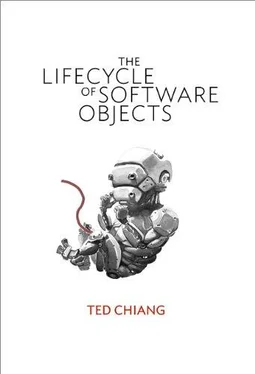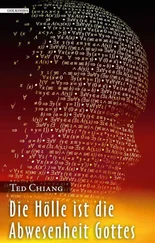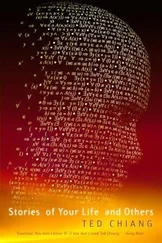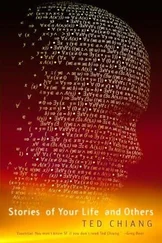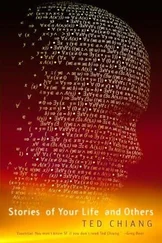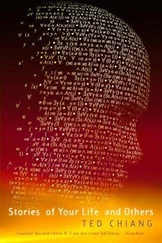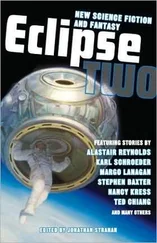She has the mascots sufficiently well-trained that they wait for her permission before they start playing the games. “All right everyone, go ahead,” she says, and the digients all rush over to their favorites. “I’ll see you all later.”
“No,” says Jax. He stops and walks back to her avatar. “Don’t want play.”
“What? Sure you do.”
“No playing. Want job.”
Ana laughs. “What? Why do you want to get a job?”
“Get money.”
She realizes that Jax isn’t happy when he says this; his mood is glum. More seriously, she asks him, “What do you need money for?”
“Don’t need. Give you.”
“Why do you want to give me money?”
“You need,” he says, matter-of-factly.
“Did I say I need money? When?”
“Last week ask why you play with other digients instead me. You said people pay you play with them. If have money, can pay you. Then you play with me more.”
“Oh Jax.” She’s momentarily at a loss for words. “That’s very sweet of you.”
#
After another year has gone by, it becomes official: Blue Gamma is shutting down its operations. Not enough customers were willing to take a chance on the perpetually docile digients. Internally there were many proposals discussed, including a breed of digient that understands language but can’t speak, but it was too late. The customer base has stabilized to a small community of hardcore digient owners, and they don’t generate enough revenue to keep Blue Gamma afloat. The company will release a no-fee version of the food-dispensing software so those who want to can keep their digients running as long as they like, but otherwise, the customers are on their own.
Most of the other employees have been through company collapses before, so while they’re unhappy, for them this is just another episode of life in the software industry. For Ana, however, Blue Gamma’s folding reminds her of the closure of the zoo, which was one of the most heartbreaking experiences of her life. Her eyes still tear up when she thinks about the last time she saw her apes, wishing that she could explain to them why they wouldn’t see her again, hoping that they could adapt to their new homes. When she decided to retrain for the software industry, she was glad that she’d never have to face another such farewell in her new line of work. Now here she is, against all expectation, confronted with a strangely reminiscent situation.
Reminiscent, but not the same. Blue Gamma doesn’t actually need to find new homes for its dozen mascots; it can just suspend them, with none of the implications that euthanasia would have. Ana herself has suspended thousands of digients during the breeding process, and they aren’t dead or feeling abandoned. The only suffering created by suspending the mascots would be on the part of the trainers; Ana has spent time with the mascots every day for the last five years, and she doesn’t want to say goodbye to them. Fortunately, there’s an alternative: any employee can afford to keep a mascot as a pet in Data Earth, whereas keeping an ape in her apartment hadn’t even been a possibility.
Given how easy it is, Ana’s surprised that more of the employees don’t want to adopt a mascot. She knows she can count on Derek to take one–he cares about the digients just as much as she does–but the trainers are unexpectedly reluctant. They’re all fond of the digients, but most feel that keeping one as a pet now would be like doing their job after they’ve stopped being paid. Ana is sure that Robyn will take one, but Robyn preempts her with news of her own at lunch.
“We weren’t going to tell anyone yet,” Robyn confides, “but…I’m pregnant.”
“Really? Congratulations!”
Robyn grins. “Thanks!” She releases a flood of pent-up information: the options that she and her partner Linda considered, the ova-fusion procedure they gambled on, their fabulous luck at having the first attempt succeed. Ana and Robyn discuss issues of job hunting and parental leave. Eventually they get back to the topic of adopting the mascots.
“Obviously you’re going to have your hands full,” says Ana, ”but what do you think about adopting Lolly?” It would be fascinating to see Lolly’s reaction to a pregnancy.
“No,” says Robyn, shaking her head. “I’m past digients now.”
“You’re past them?”
“I’m ready for the real thing, you know what I mean?”
Carefully, Ana says, “I’m not sure that I do.”
“People always say that we’re evolved to want babies, and I used to think that was a bunch of crap, but not anymore.” Robyn’s facial expression is one of transport; she’s no longer speaking to Ana exactly. “Cats, dogs, digients, they’re all just substitutes for what we’re supposed to be caring for. Eventually you start to understand what a baby means, what it really means, and everything changes. And then you realize that all the feelings you had before weren’t–” Robyn stops herself. “I mean, for me, it just put things in perspective.”
Women who work with animals hear this all the time: that their love for animals must arise out of a sublimated child-rearing urge. Ana’s tired of the stereotype. She likes children just fine, but they’re not the standard against which all other accomplishments should be measured. Caring for animals is worthwhile in and of itself, a vocation that need offer no apologies. She wouldn’t have said the same about digients when she started at Blue Gamma, but now she realizes it might be true for them, too.
The year following Blue Gamma’s closure involves many changes for Derek. He gets a job at the firm that employs his wife Wendy, animating virtual actors for television. He’s fortunate to work on a series with good writing, but no matter how quick-witted and nonchalant the dialogue sounds, every word of it, every nuance and intonation, is painstakingly choreographed. During the animation process he hears the lines delivered a hundred times, and the final performance seems glossy and sterile in its perfection.
By contrast, life with Marco and Polo is a never ending stream of surprises. He adopted both of them because they didn’t want to be separated, and while he can’t spend as much time with them as when he worked for Blue Gamma, owning a digient now is actually more interesting than it’s ever been before. The customers who kept their digients running formed a Neuroblast user group to keep in touch, and while it’s a smaller community than before, the members are more active and engaged, and their efforts are bearing fruit.
Right now it’s the weekend, and Derek is driving to the park; in the passenger seat is Marco, wearing a robotic body. He’s standing upright on the seat–restrained by the seat belt–so he can see out the window; he’s looking for anything that he’s only seen before in videos, things that aren’t found in Data Earth.
“Firi hidrint,” says Marco, pointing.
“Fire hydrant.”
“Fire hydrant.”
“That’s right.”
The body Marco’s wearing is the one that Blue Gamma owned. Group field trips came to an end because SaruMech Toys closed shortly after Blue Gamma did, so Ana–who got a job testing software used in carbon-sequestration stations–bought the robot body at a discount for Jax to use. She let Derek borrow the body last week so Marco and Polo could play in it, and now he’s returning it. She’s going to spend the day in the park, letting other owners’ digients have a turn in the body.
“I make fire hydrant next craft time,” says Marco. “Use cylinder, use cone, use cylinder.”
“That sounds like a good idea,” says Derek.
Marco’s talking about the craft sessions that the digients now have every day. These began a few months ago, after an owner wrote software that allowed a few of Data Earth’s onscreen editing tools to be operated from within the Data Earth environment itself. By manipulating a console of knobs and sliders, a digient can now instantiate various solid shapes, change their color, and combine and edit them in a dozen different ways. The digients are in heaven; to them it seems as if they’ve been granted magical powers, and given the way the editing tools circumvent Data Earth’s physics simulation, in a sense they have. Every day after work when Derek logs into Data Earth, Marco and Polo show him the craft projects they’ve made.
Читать дальше
